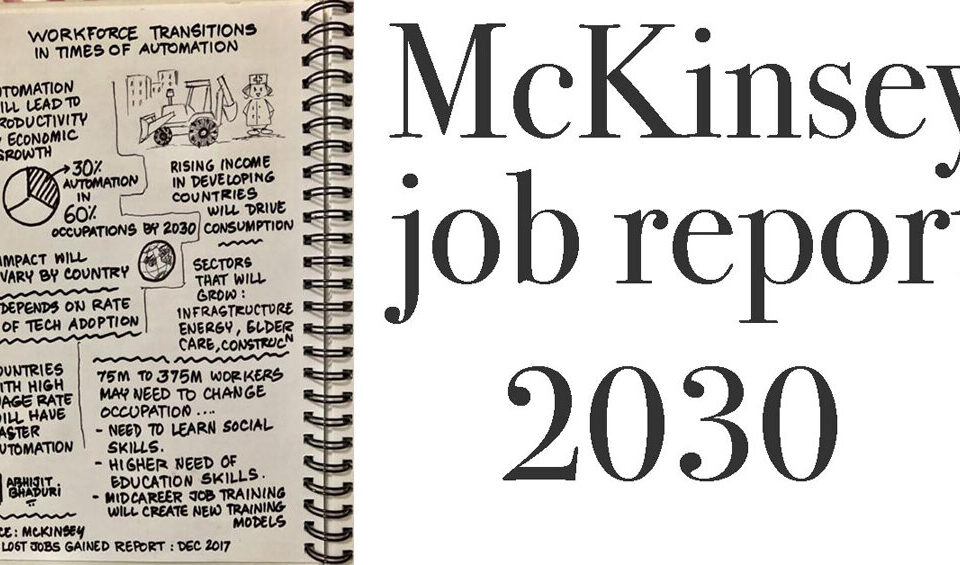The pattern is clear about data breaches. The hackers sneak in to the databases. Since they are in stealth mode, their presence is not detected for months. Could it be that your employees’ data has been compromised and you are blissfully unaware?
Automation is inevitable to drive productivity and growth. 60% occupations will see 30% automation by 2030 says McKinsey’s latest report. This means a lot of people will need to make mid-career transitions.
The New York Times ran a study on the jobs we are most likely to inherit from the mother or father. In their study they found that males are 2.7 times likely to share dad’s profession. Males are two times likely to share their mother’s profession. Daughters are 1.8 times likely to follow dad and 1.7 times likely to follow their mother. Parents certainly shape our view of work. It is no surprise that the children of parents who were unemployed are more likely to be unsure of the profession they would choose.
The jobs that follow the “faster, higher, stronger” principle will progressively be taken over by machines. It is easy to program the robots to do something repetitively and do it blindingly fast. Not only can robots do the work faster than humans, they do not have Monday morning blues. They do not seek vacation days nor do they object to working on weekends. They can go through mountains of data in a moment and identify anomalies. They are better legal assistants than humans. They make better radiologists than humans. Any job that is faster for machines to carry out makes it uneconomical to be left to humans. That means we will have many of these jobs carried out by robots replacing humans – men to be precise.
Layoffs hurt. They hurt even more when companies do it paying scant attention to the financial and emotional trauma that a job loss is bound to cause. They also spark furious backlashes, hurting the corporate brand and resulting in a catastrophic loss of trust. A case in point could be Tech Mahindra, India's leading information technology (IT) company and part of the $19 billion Mahindra Group. Right now, its management is facing allegations of large-scale and illegal retrenchment of its employees in Hyderabad. Earlier, too, the company came under fire when the audio clip of a termination call went viral. In that audio clip, the company's human resource (HR) executive was heard asking an employee to resign by 10 a.m. the next day or face termination. The employee kept pleading for a reasonable notice period or a discussion but was told there could be no room for 'flexibility'.My take for Business Today dated Sep 10, 2017
India needs to add a million jobs a month every year to feed the youth who are entering the workforce. Every AI agent will need to be trained through millions of iterations. As more AI applications emerge, the need for training AI will grow exponentially. Labor arbitrage will make India an attractive destination for jobs that involve training AI. A study has found six areas where the use of robots will create new jobs: automobiles, electronics, renewable energy, skilled systems, robotics and food and beverage. Jobs like robot psychologist, personal online shopper, robot ethicist did not exist before. This may even be the next outsourcing wave for India. But the jobs we get will have their consequences...
Wall Street cheered McDonald’s decision to have digital kiosks in 2500 locations to do what cashiers would. The shareholders cheered loudly and McDonalds shares hit an all-time high. The move is part of an initiative ironically named as “Experience of the Future.” These “McJobs” have funded many students and families with living wages. That may not happen for long.
From using VR to design warships (it can't get more serious) to having Realtors do virtual walk throughs. A friend from US mentioned recently that his wife (who is a realtor) has increased her sale because it lets a potential buyer do a virtual walk-through of the property. Try and buy is going to become the way we shop. Learning and development has huge opportunities to use VR in training employees not just on the product and services but to build more empathy with customers. Leadership training can use VR to build empathy - an elusive area so far.
The data we generate is then used to craft algorithms that can predict our next move. That is the basis of all the nudges we get as we shop. “Those who bought X also bought Y” is the algorithm trying to figure out your next move. The algorithms are always trying to second guess you — till the time you give up controls of your life to the algorithm. Then why not make a living by selling this data that is ours.









